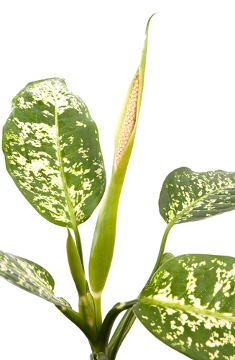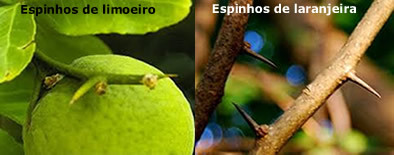THE Nobody can with me it is a plant commonly found in the gardens of Brazilian homes. But did you know that this seemingly harmless little plant can cause serious health problems and even lead to death?
Nobody can with me is the popular name of a plant of the genus Dieffenbachia, belonging to the Araceae family. It is also known as aninga-para in some places.
It usually reaches two meters in height and is characterized by having small white spots on its leaves. The inflorescences are of the spadix type, similar to the calla lily flower. Fruits vary in color from orange to red.

Note the spadix-like inflorescence of me-no-one-can
Despite being found in many places, it is extremely toxic and should not be around children. In these plants there are substances known to calcium oxalate crystals, which, in this species, are found in the form of raffids (name given to these needle-shaped crystals).
Some researchers believe that this plant, when ingested, releases raffids and they perforate the mucosa, causing irritation. In addition, the plant has a substance called dumbcaine, which is responsible for aggravating the allergic reaction.
This plant, so popular in gardens, is responsible for several cases of poisoning, especially in children, who are normally attracted by the beauty of the leaves. When taking pieces of the plant to the mouth, there is an increase in the amount of saliva, in addition to pain in the mouth and tongue region. After a while, you notice the swelling of the site, as well as nausea and vomiting. Deaths have been reported after eating this vegetable, mainly due to the obstruction of the respiratory system caused by swelling.
It is noteworthy that, when in contact with the eyes, the plant can cause damage to that organ. One of the symptoms observed is photophobia, that is, the person perceives great discomfort in bright places. In addition, irritation and tearing may be noted.
There are reports of people who removed leaves from me-no-one-can and showed an allergic skin reaction. Some observed the presence of burns and blisters after contact with the plant. Therefore, it is best to avoid any kind of contact!
In case of intoxication, it is extremely important to seek a doctor so that the correct remedy is indicated.
By Ma. Vanessa dos Santos



